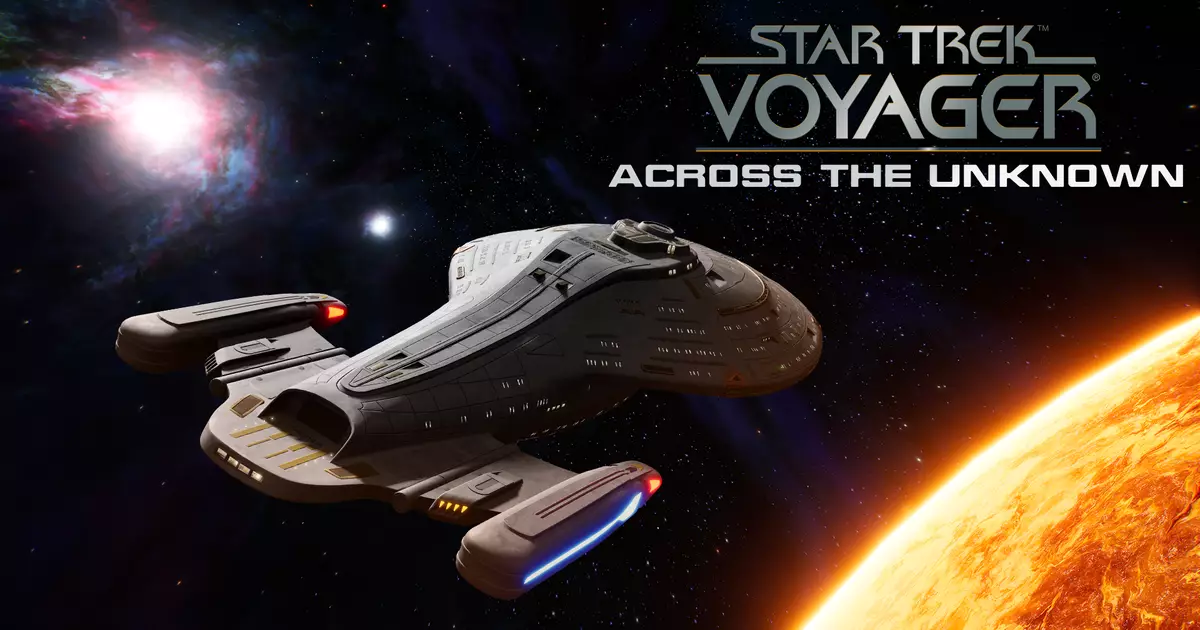The announcement of “Star Trek: Voyager – Across the Unknown” heralds an exciting shift in how fans and gamers can experience the beloved Star Trek universe. Unlike traditional narrative-based titles, this game promises an immersive blend of exploration, survival, and strategic decision-making. By offering a fresh perspective on the Voyager saga, developers are daring to redefine what a Star Trek game can be—much more than mere retellings, but a sandbox for “what-if” scenarios that ignite the imagination. The choice to craft a story-driven survival strategy experience demonstrates confidence that Star Trek’s lasting appeal lies in its capacity for endless reinterpretation and bold experimentation.
Strategic Depth Meets Narrative Freedom
What truly sets this game apart is its ambitious combination of mechanics. Resource management, diplomacy, and morality form the core gameplay, compelling players to make tough choices with lasting consequences. The inclusion of roguelite elements means every playthrough feels distinct—facing different crises, character fates, and ship configurations. This aspect taps into the thrill of unpredictability that fans often crave, all while maintaining the narrative depth that the franchise is renowned for. The base-building component, reminiscent of beloved strategy games like XCOM, adds a layer of personalization and long-term planning, giving players the power to shape Voyager’s internal systems and facilities.
Celebrating Crew Dynamics and Iconic Characters
Star Trek has always been about its characters—complex, diverse individuals navigating moral dilemmas and forging bonds under extraordinary circumstances. “Across the Unknown” seems eager to emphasize this aspect, with players able to select and manage a crew of familiar faces, from Captain Janeway to Harry Kim, with the added excitement of pairing them for specific missions. The game promises rich interactions and team compositions that can determine success or failure, emphasizing strategic synergy and crew morale. It’s a nostalgic yet innovative approach that allows fans to indulge in “what-if” scenarios—what if Janeway became Borg Queen? What if The Doctor got promoted to captain? These imaginative possibilities breathe new life into the Voyager narrative, making every decision a potential story of its own.
Gameplay Mechanics and Player Agency
While some might cringe at the mention of roguelike elements—given their popularity in recent years—there’s a genuine opportunity here for meaningful engagement. Each run’s unpredictability and failure penalty could foster a sense of tension and discovery akin to classic sci-fi survival stories. The ship-to-ship combat aspect, involving tactical crew deployment, invites a strategic mindset, rewarding players who pay attention to system vulnerabilities and crew skills. Meanwhile, away missions provide a more personalized experience, where players can assemble specialized teams to undertake dangerous tasks. This variety ensures that gameplay remains dynamic, with ample room for experimentation and personal style, shaping how players interpret Voyager’s storylines.
Potential Pitfalls and Real Challenges
Yet, skepticism remains warranted. The developers, with a background rooted in comic adaptations, might seem an unlikely source for space strategy innovation. This could be a double-edged sword—while it may bring a unique, playful flavor to the game, it also raises questions about depth, polish, and fidelity to the source material. The depiction of space exploration within a “dinkier” top-down view risks diminishing the majesty and mystery of the Delta Quadrant, turning it into an abstract grid rather than a vast, enveloping universe. Moreover, the reliance on nostalgia could oversimplify or overlook the nuanced storytelling fans cherish, risking a product that’s more reminiscent of a fan homage rather than a fully realized game experience.
A Future Shaped by Fans and Innovation
Despite these uncertainties, the concept of “Across the Unknown” touches on a fundamental truth: the enduring appeal of Star Trek lies in its capacity to evolve and inspire. The game has the potential to become a sandbox where players reinterpret Voyager’s journey, exploring scenarios that never happened—becoming a testament to the franchise’s versatility. If executed thoughtfully, it could serve as both an homage to enduring fans and an inviting entry point for newcomers. Ultimately, whether this project elevates or falls short depends on its ability to blend strategic gameplay with heartfelt storytelling—delivering an experience that honors Star Trek’s legacy while boldly venturing into uncharted gaming territory.

